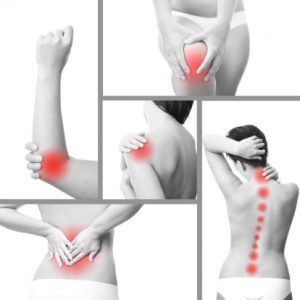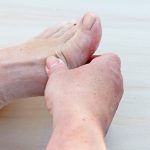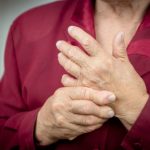 This coming week is rheumatoid arthritis awareness week, and your friends at Bel Marra have taken the time to bring you information on this topic to broaden your knowledge and understanding of the disease. We have compiled a list of articles touching on palindromic rheumatism, rheumatoid arthritis and feet, and rheumatoid arthritis and depression. Millions of people are affected by this condition, making their lives challenging and often painful. By equipping yourself with more information on the disease, you can better help yourself and the people around you.
This coming week is rheumatoid arthritis awareness week, and your friends at Bel Marra have taken the time to bring you information on this topic to broaden your knowledge and understanding of the disease. We have compiled a list of articles touching on palindromic rheumatism, rheumatoid arthritis and feet, and rheumatoid arthritis and depression. Millions of people are affected by this condition, making their lives challenging and often painful. By equipping yourself with more information on the disease, you can better help yourself and the people around you.
Palindromic rheumatism (a cause of rheumatoid arthritis): Causes, symptoms, and treatment
Palindromic rheumatism is a rare inflammatory condition and a precursor of rheumatoid arthritis, with about a third of patients progressing to the disease. Palindromic rheumatism is considered a form of inflammatory arthritis that also goes by the name palindromic arthritis. It is characterized by flare-ups that start in one joint but may spread to others before settling down. Flare-ups are episodic in nature. Continue reading…
 Obesity in women may confound rheumatoid arthritis diagnosis
Obesity in women may confound rheumatoid arthritis diagnosis
Advertisement
According to a new study, blood tests used to diagnose and monitor rheumatoid arthritis may be inaccurate if the patient happens to be an obese woman. This makes it harder to track the progression of the disease, as the signs of rheumatoid arthritis become obscured by the bodily changes associated with obesity.
“Physicians might assume that high levels of inflammation mean that a patient has rheumatoid arthritis or that their rheumatoid arthritis requires more treatment, when in fact, a mild increase in levels of inflammation could be due to obesity instead,” explained study author Dr. Michael George, who’s with the University of Pennsylvania Health System in Philadelphia. Continue reading…
 Rheumatoid arthritis and feet: The connection and feet arthritis pain relief tips
Rheumatoid arthritis and feet: The connection and feet arthritis pain relief tips
Rheumatoid arthritis is a chronic disease involving the immune system in which joints undergo inflammation, causing pain and stiffness. People with rheumatoid arthritis generally find difficulty to perform simple movements that involve the joints, such as walking, standing up, and sitting down.
This condition has also affected individual performance at work or school, prompting the medical field to identify an effective treatment. Having this inflammatory condition affecting the joints may also be responsible for certain emergency visits to the hospital, especially when a person suffers from a decreased ability to operate a motor vehicle or machine. In other cases, visits to the emergency room may be due to extreme pain experienced by a patient with rheumatoid arthritis. Continue reading…
 Study finds new method for prognosis of rheumatoid arthritis
Study finds new method for prognosis of rheumatoid arthritis
A new study presented by researchers at the department of Immunology, Genetics and Pathology at Uppsala University in collaboration with colleagues at Karolinska Institute Medical University have produced a new tool for the prognosis and choice of therapy for rheumatoid arthritis by testing for antibodies against the cartilage protein collagen II.
Advertisement
“Analyzing these antibodies, in combination with other relevant antibodies, could be used for predicting prognosis and choosing therapy for rheumatoid arthritis patients,” says Professor Johan Rönnelid, who led the study. Continue reading…
 Rheumatoid arthritis and depression linked: Depression may worsen the arthritis pain
Rheumatoid arthritis and depression linked: Depression may worsen the arthritis pain
Depression has been found to worsen pain experienced in rheumatoid arthritis. Rates of depression among rheumatoid arthritis patients is estimated between 13 to 42 percent which reveals how closely associated the two conditions really are. As to why depression is so prevalent in arthritis is that dealing with a chronic condition is stressful which can take a toll on someone’s mental health.
Depression can stem from the acknowledgement that a person with arthritis is unable to perform common functions which they did before or form living in pain. Furthermore patients may feel anxious that they now need to rely on others for support along with worrying about changes that are occurring with their bodies. Continue reading…
